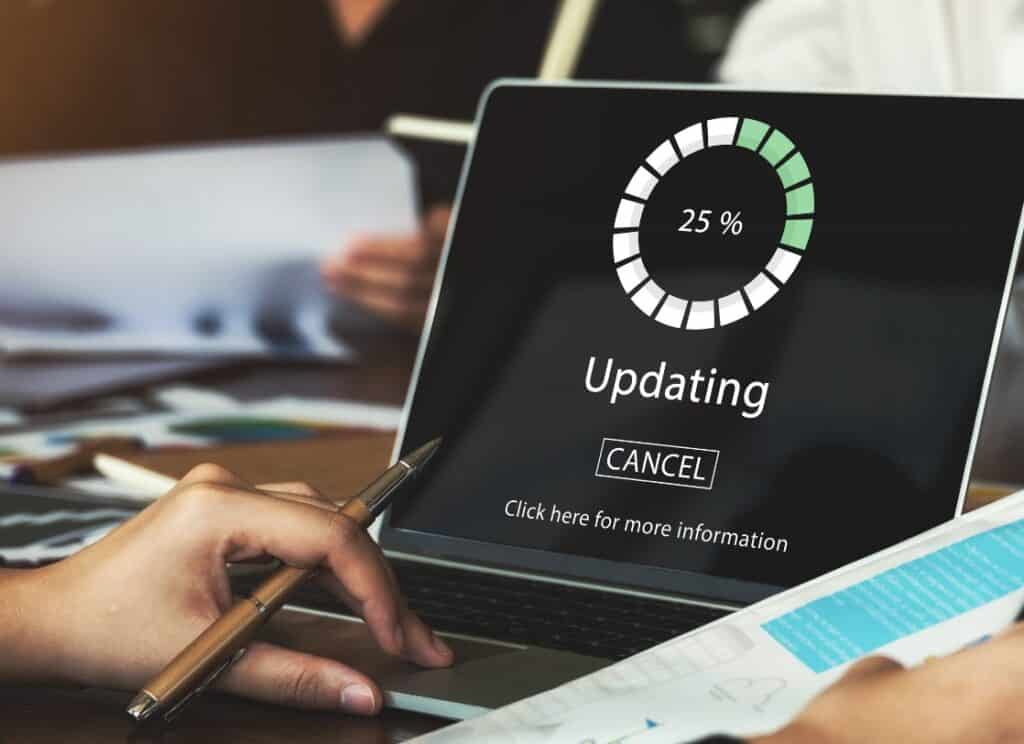8 Tips To Improve Cyber Security in 2022

If Covid-19 has taught us one thing, it is that remote working, flexible working and hybrid working will continue in 2022 and beyond. The pandemic pushed companies to move to cloud-based technology to quickly facilitate effective remote working. A few years on, we have shown that remote working not only works well, but it also increases productivity. With remote working here to stay, the importance of cyber security is ever increasing, with 77% of UK companies saying it is their highest priority. Remote workers using their own devices are at an increased risk of cyber attacks and data breaches and they can unintentionally make themselves a target for hackers. According to official statistics released by Gov.UK, 39% of companies reported having cyber security breaches or attacks in 2021. With these threats on the rise, it is important that your remote workers protect themselves against cyber attacks and play their part in keeping company information secure. In this article, we will share 8 tips on how to do so.

1. Keep computer hardware and software up to date
With staff working remotely, it has become more difficult to upgrade hardware and software and less companies report having up-to-date malware protection now in comparison to pre-pandemic years. Remote workers can protect themselves and sensitive company data by keeping the hardware and software on all their devices up to date. New vulnerabilities can appear very quickly, so it is important to remind your team to enable automatic updates and use a good antivirus software to keep their activity and data safe. Something as simple as sending a weekly reminder by email could encourage this practice.
2. Use a reliable and trustworthy cloud service provider
Ensuring that you use a dependable cloud service provider is important to keep your data safe. A good cloud service provider will ensure that you can safely access, edit, or manage your work documents from anywhere, without having to worry about security threats. When looking for a prospective cloud service provider, make an informed decision by considering their certifications, standards and what their customers say about them.
3. Be careful when working in public spaces
Public Wi-Fi does not have the same security as an office or home network and cyber criminals can easily access your computer if you are using the same network. Encourage your staff to use a personal hotspot if they are working in a cafe with Wi-Fi. They should also be aware of their surroundings and make sure that no one can see what they are doing. This includes being careful when working in public and making sure that laptops are hidden from view.

4. Keep your work private with a VPN
Although 61% of IT spending in 2021 was in cyber security, only 34% of UK companies used VPNs. When you are working remotely a VPN will keep your data private. A VPN is a service that both encrypts the data you send and receive and hides your information. You can use a VPN on public Wi-Fi hotspots and networks that might not be safe, without being traced. You should only use a VPN with multi-factor authentication (MFA) as this makes it safer when you log in to sensitive data. Set up a secure remote access VPN for your remote workers.
5. Use complex passwords
An effective way to prevent cyber security issues is to create passwords that are hard for people to guess. One way you can do this is by using a mix of letters, numbers and special characters. It can be tricky to remember these passwords, so it is useful if the password includes something personal about you, such as where you were born or your favourite sport. This will help you remember your password. Another thing you can do is use software that encrypts your information from the start and stores it without knowing what it is. Talk to your staff about creating strong passwords and keeping them private.

6. Educate yourself and your remote workers
Phishing attempts, where cyber criminals try to trick people into downloading malicious files or click on dangerous links, are on the rise. If you are not aware of what phishing attacks are, or how to spot them, no VPN or antivirus software will be able to protect you. It is vitally important that you educate yourself and your team about phishing attacks to avoid falling victim to them. Attend training sessions and phishing simulation tests so you can easily identify them and encourage your team to do the same.
7. Install firewalls
Fewer businesses in 2021 set up network firewalls and figures now show that 32% of large businesses face significant security risks from having laptops with unsupported versions of Windows. Firewalls monitor all the network traffic going in and out of your computer and protects your system from cyber attacks. Encourage your teams to turn firewalls on in their settings to block potentially harmful connections.
8. Have a unified endpoint management (UEM) solution
Unified endpoint management (UEM) is software which manages the devices your remote workers may use to access company data, such as phones, computers, laptops, tablets etc. It is a highly evolved system which has replaced mobile device management (MDM) and enterprise mobility management (EMM). UEM is the most effective way to protect remote workers and company data as it helps businesses manage and control security and identity, monitoring staff and preventing attacks by hackers and other internet security threats.
Comms Connect highly recommends Ivanti unified endpoint management (UEM) solutions to keep track of all your user devices, manage user privileges and automate the distribution of software.

Ivanti provides comprehensive defence against viruses, ransomware and other threats to your company data.
- Promotes productivity by allowing remote workers to safely work on their preferred devices
- Finds and manages devices from PCs to mobile phones and laptops
- Identifies the best cyber security strategy for your business
- Configures devices to access networks in the office or remotely
- Ensures devices are compliant with security requirements
To find out more about Ivanti unified endpoint management (UEM) solutions and ways in which to protect your company data, visit our website or contact us on 0345 370 5000
to speak with an expert.



